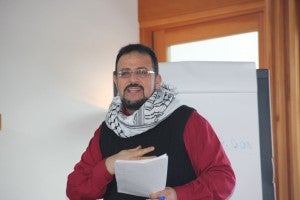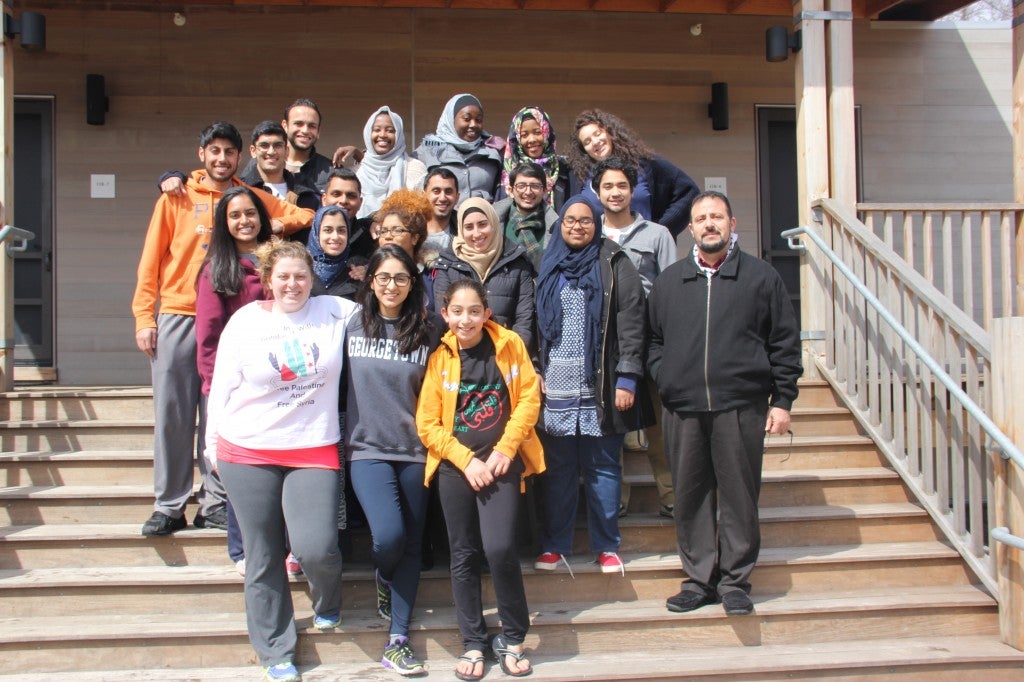Muslim Life Spring Retreat: Paths to the Heart
This past March, I had the amazing opportunity to attend the Muslim Life Retreat. The retreat focused on a critical examination of the heart, understanding its importance in belief and faith, and how to cure and heal the hart of spiritual diseases and illnesses. The heart (qalb) is an essential organ in the body for pumping blood; but is also vital for belief, reasoning, understanding, comprehension, tranquility, trust, humility, guidance, certainty, and devotion towards God. Indeed, the Qur’an mentions the differences between a sound and sick heart — the latter is plagued with lust, jealousy, anxiety, cruelty, arrogance, conflict, negligence, and disbelief. The heart, not the brain, is the center of understanding and comprehension. Indeed, a frequent invocation of the Prophet Muhammad (S.A.A.W) was, “O Turner of the Hearts, keep our hearts firm (steadfast) on Your religion” (Sahih Muslim). Qalb is one of three words used to describe the heart in the Qur’an, which means to turn or flip something around. Fu’aad is another term used in the Quran to describe when the heart is burning with various emotions, desires, and feelings like an ignited flame. Finally, Sadr refers to the chest cavity that can be filled with hidden whispers, secrets, yearnings, and desires. Indeed, in Surah An-Nas we ask Allah to protect our chests from the whispers of Iblis. Iblis, however, isn’t granted access to our hearts. Only we have access and control of what enters and leaves our hearts. We must take this responsibility with serious thought and consideration with its implications on our lives as people who claim to be of faith and belief. This retreat was an eye-awakening experience for all of us who attended and lived blindly distant from what lurks within our hearts.
 Imam Hendi and Imam Tarif asked us all to sit down and reflect on the current state of our heart. Were are hearts heavy, clouded, and polluted by our regrets, fears, doubts, or insecurities? What was holding us back from connecting with God? I remember taking a deep breath and concentrating on the impact of the exhalation on my heart. Had I been ignoring the condition of my spiritual heart within my actual heart? Then, they asked us to reflect on the impact of our environment on the state of our spiritual heart. Do we surround ourselves with good people who commit good deeds? Or do we gather around people who commit shameful acts against God and humanity? What are we doing to draw near to the Healer, Preserver, Loving, and Forgiving One who alone can give us a pure and sound heart?
Imam Hendi and Imam Tarif asked us all to sit down and reflect on the current state of our heart. Were are hearts heavy, clouded, and polluted by our regrets, fears, doubts, or insecurities? What was holding us back from connecting with God? I remember taking a deep breath and concentrating on the impact of the exhalation on my heart. Had I been ignoring the condition of my spiritual heart within my actual heart? Then, they asked us to reflect on the impact of our environment on the state of our spiritual heart. Do we surround ourselves with good people who commit good deeds? Or do we gather around people who commit shameful acts against God and humanity? What are we doing to draw near to the Healer, Preserver, Loving, and Forgiving One who alone can give us a pure and sound heart?
 I was drawn in by Imam Hendi’s emphasis on the qalb (heart), aql (intellect), and hawa (emotions, desires, ambitions) and how these three interact with one another. I couldn’t help but create an image in my head of an aqal (a traditional Somali house) with a sound and firm foundation that represents the qalb able to withstand the winds and changing weather, like hawa in our own lives. A spiritually sound heart has the capacity to overcome and withstand the trials and challenges life throws at us. The imagery of this aqal made me realize my spiritual heart could no longer go on neglected and under appreciated. My relationship with my heart is key to my relationship with my Creator. This was the powerful realization Imam Hendi and Imam Tarif helped me reach.
I was drawn in by Imam Hendi’s emphasis on the qalb (heart), aql (intellect), and hawa (emotions, desires, ambitions) and how these three interact with one another. I couldn’t help but create an image in my head of an aqal (a traditional Somali house) with a sound and firm foundation that represents the qalb able to withstand the winds and changing weather, like hawa in our own lives. A spiritually sound heart has the capacity to overcome and withstand the trials and challenges life throws at us. The imagery of this aqal made me realize my spiritual heart could no longer go on neglected and under appreciated. My relationship with my heart is key to my relationship with my Creator. This was the powerful realization Imam Hendi and Imam Tarif helped me reach.
But what characterizes a sound and firm heart bound to God? It is the heart of an individual who upon entering supplication and worship leaves his or her worldly troubles, desires, and conflicts behind seeking solely the pleasure of their Lord. Someone who finds relief and comfort in worship as a means of satisfying the spiritual hunger pains of their heart. Someone who feels pain and heaviness in their heart when committing a bad deed and is not concerned about its ramifications on their life in this world. Someone whose heart is constantly in reverence and devotion to God. O The Most Merifical and the Most Beneficent, we pray you make us of these people and turn our hearts towards you. Ameen.
Khadija Mohamud, SFS’17
- Tagged
- Muslim
